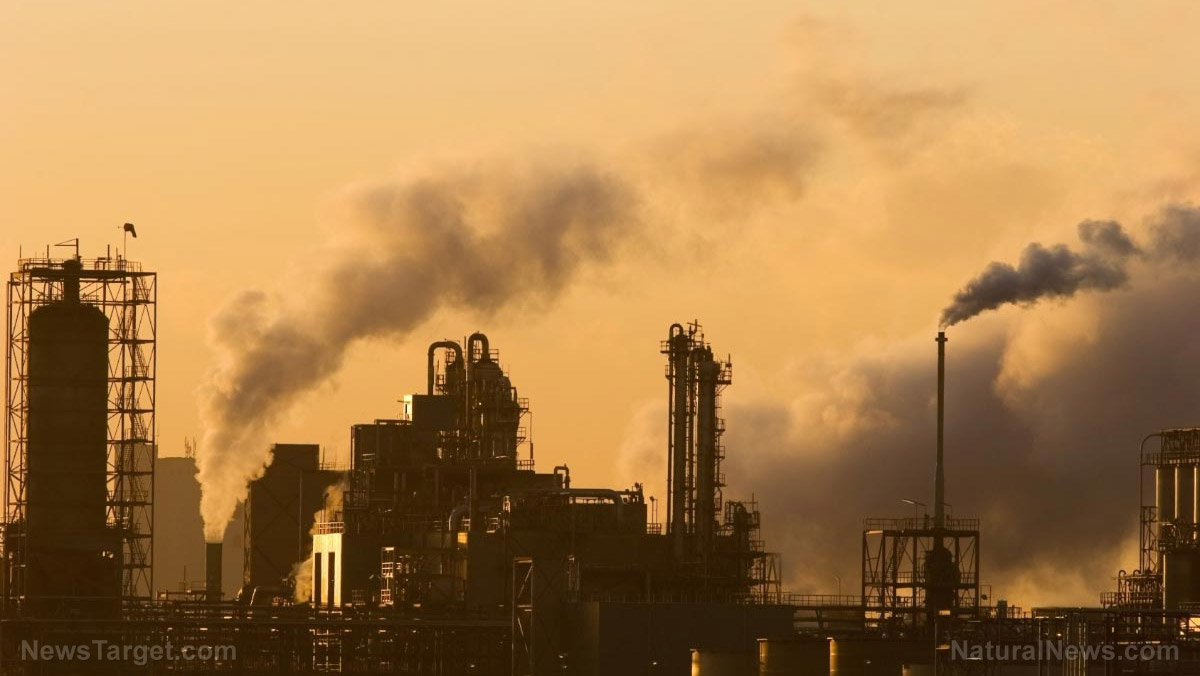The U.S. Steel Fairless Works plant in Falls, PA found to be the one of the worst water polluters in the state
05/21/2018 / By Edsel Cook

In a Bucks County Courier Times report, a local environmental nonprofit has compiled a list of the ten worst water polluters in Pennsylvania. One of these facilities is the U.S. Steel Fairless Works plant in Falls, PA.
PennEnvironment based this list on Environmental Protection Agency (EPA) data from January 2016 to September 2017. The nonprofit counted the number of times an entity broke the water pollution limits of the Clean Water Act, the federal law that protects U.S. water supplies.
Based on their findings, the U.S. Steel facility ranked ninth on the list of top polluters. The facility violated its pollution permits 20 times within those 21 months. (Related: EWG report: Fluorinated chemical pollution is still spreading and there’s “no end in sight.”)
Furthermore, PennEnvironment compared the number of such violations in states across the U.S. They reported that Pennsylvania had 633 violations, which made it the second-worst state when it came to enforcing water pollution limits.
The nonprofit’s Pennsylvania spokesperson, Stephanie Wein, stated that nearly 20,000 miles of rivers and streams are still not safe for human use. She said facilities like Fairless Works continue to discharge chemical pollutants into local bodies of water.
U.S. Steel plant dumps excessive amounts of chemicals into Delaware River
EPA data showed that the Fairless Works plant exceeded its water pollution permits for every quarter during 2015 to 2017. The federal agency also identified four particular quarters that showed excessive levels of pollutants.
Most of these violations involved biochemical oxygen demand (BOD). This water quality test checks the amount of oxygen required to decompose organic pollutants in wastewater.
High levels of pollutants lowered the oxygen levels available for fish and other aquatic animals. It turns out, the Fairless Works plant dumped its wastewater into the Delaware River.
The U.S. Steel facility also exceeded BOD limits by at least 100 percent on nine different occasions during three years. The worst incident happened in fall 2016, when it violated the limit by 1,706 percent.
U.S. Steel and Pennsylvania’s Department of Environmental Protection (DEP) responded to the report with e-mails saying the company’s sewage treatment plant is processing the wastewater of all industrial facilities in the area.
DEP spokesperson Virginia Cain said that U.S. Steel is working with other companies to reduce the amount of industrial pollutants in the wastewater discharge. The company is a part of the DEP’s Operator Outreach Program and has been improving the water quality at its Fairless Work plant.
“Notably, DEP is not seeing an impact to the Delaware River at this time,” Cain said.
Despite numerous violations of water standards, U.S. Steel has never been fined or penalized
Strangely, U.S. Steel has never paid a fine or received penalty for Fairless Work’s numerous violations of its water permit. DEP spokesperson Cain explained that the agency concentrates on getting a facility to comply with water standards before imposing penalties.
“In this case, DEP is engaged in ongoing efforts with U.S. Steel to achieve compliance. DEP reserves the right to seek fines and penalties at a later time,” she said.
U.S. Steel is not the only water polluter that has gotten away with breaking the Clean Water Act. The PennEnvironment analysis discovered the problem occurrs nationwide.
The nonprofit’s Pennsylvania spokesperson, Wein, noted that the budget of the DEP is a pale shadow of its former self. In 2003, the annual budget was $246 million, but it dwindled to $148 million by 2017.
Wein believed the DEP could use a lot more resources to enforce environmental laws and ensure facilities like the U.S. Steel Fairless Works plants comply with water pollution limits.
Stay tuned on Pennsylvania’s efforts to clean up its polluted waters at CleanWater.news.
Sources include:
Tagged Under: Clean Water Act, dangerous chemicals, Delaware River, Ecology, environment, industrial wastewater, lack of funding, Pennsylvania, toxic water, wastewater, wastewater treatment plant, water polluters




















